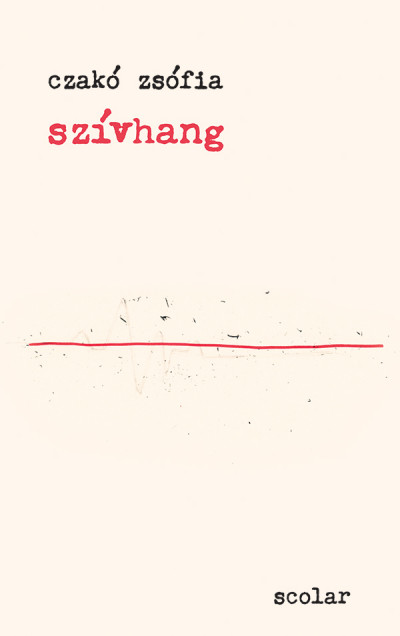
Author: Zsófia Czakó
Original title: Szívhang
Title in English: Heartbeat
Publisher: Scolar
Year of publication: 2022
Number of pages: 170
Zsófia Czakó’s second book tells the story of a miscarriage. It does not, however, center on why the miscarriage took place. Rather, it contextualizes the traumatic experience of losing a baby. It paints a bleak picture of a hospital ward where the narrator is taken so that doctors can remove a dead fetus from her body and the rural town where her neighbors try to encourage her with trite clichés such as “time heals all wounds” and “the Lord giveth and the Lord taketh away.” All she sees, however, is that most of the women around her have it so much easier when it comes to having a baby, with the exception of her best friend, who is also struggling to get pregnant after several attempts at in vitro fertilization. Her perceptions shift, however, when she is scheduled for dilatation and evacuation and has to spend a few days in hospital room “G,” a designation used because of the large number of pregnant Roma or “Gypsy” women who come to the hospital. Here, she is the only patient with naturally blonde hair and white skin, and she is also “the only woman who can afford the luxury of crying.”
Though fundamentally a first-person narrative of personal trauma, Heartbeat also addresses social issues of race, gender, and loss with empathy and bitter (self-)irony. It portrays burnt-out nurses and doctors for whom apathy is a defense mechanism against the emotional responses they might have when dealing with patients who are hoping for healthy pregnancies or seeking abortions. It also offers moving if also troubling portraits of the fates of Roma girls and women, some of whom are almost regular visitors at the ward. For both groups, doctors and patients, the removal of a fetus has become a routine operation in every sense of the word. Hence the true horror of the narrator’s experience. On top of losing a baby, she also realizes that the term slaughterhouse is not just a metaphor favored by religious discourse for wards like this. The patients in room “G” are indeed treated like animals waiting for the slaughter. Dilatation and evacuation are operations that seem as uncompassionate and routinized as meat processing.
